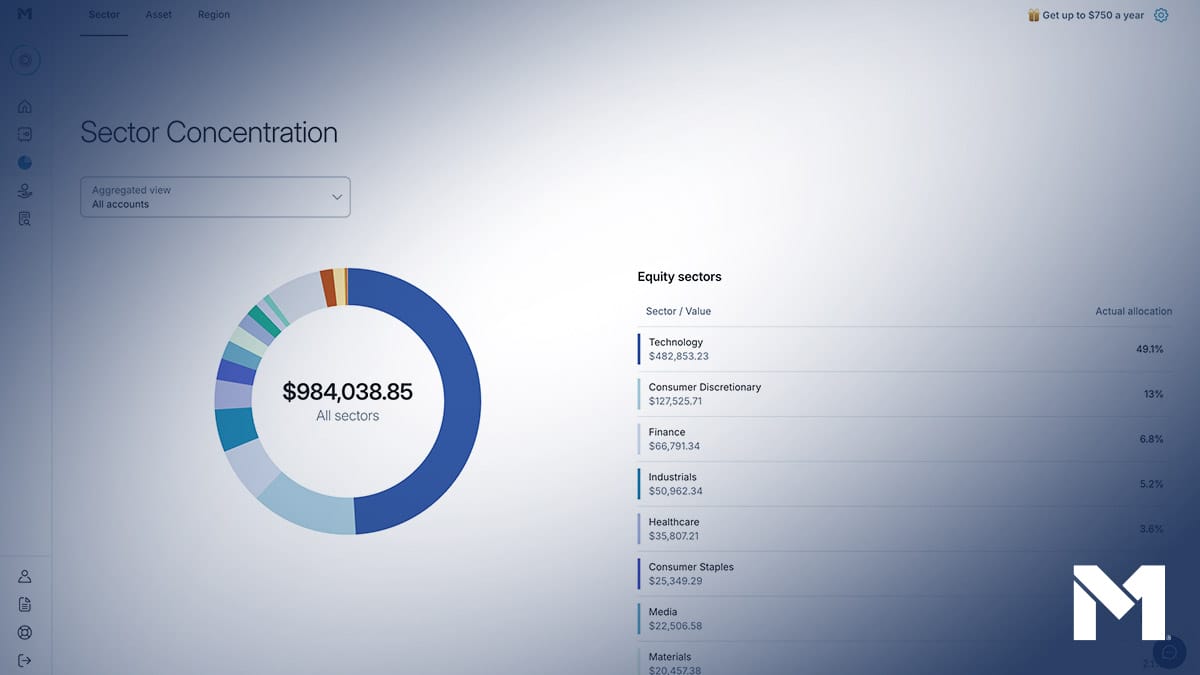Your mindset doesn’t have to mirror the market

If missed earnings, rising interest rates, and recession debates have you feeling down, you’re not alone. Financial anxiety can impact anyone. So, we’re sharing five ways to help ease your mind during a difficult market.
We’re also talking about:
- How to manage money like the mass-affluent
- The emotional benefits of meditation
- Buy low, sell high or stay “all-in”?
READING

Your mindset ≠ the market
Market and media negativity can cause stress in even the most disciplined long-term investors. Stress about inflation or your finances can diminish your financial wellness, which can lead to poor decision-making.
Financial wellness— state of well-being in which you have a positive mindset about your financial life—can be tough to maintain during down markets.
However, there are actionable ways to maintain your financial well-being:
1. Focus on your own situation.
The macroeconomic news is going to be, for the most part, negative. Reading every global story is sure to cause stress. There are a ton of economic crises happening right now, but not all of them may directly affect you. Focusing on your or your family’s individual financial life can help reframe your stress.
2. Recognize what’s out of your control.
You don’t have control over the market, interest rates, or the possibility of a recession. Accepting this doesn’t mean you agree with what’s happening but that you understand it. This gives you room to focus on what you can control: your spending, savings, contributions, and financial plan.
3. Revisit your finances.
Downturns are a good reminder to check in on your finances. While you may know how your finances are flowing in and out on a macro-level, you can use this time to examine your full portfolio on a micro-level. When you know exactly what you have, you can better understand how to keep yourself in a safe and positive position.
4. Take a step back.
Sometimes inaction is action. Down markets tend to play on our emotions. Rising interest rates may pressure you to buy a house faster or sell stocks before they fall further. But hasty emotional responses impact your ability to make informed decisions. Take a step back and think through the long-term impact before making any important moves.
5. When in doubt, zoom out.
While the market may look bad now, remember that it’s cyclical. Healthy economies contract and expand regularly. A recession can happen every five to ten years following a period of strong growth. For the long-term investor, recessions are a normal part of investing – and they don’t last forever.
For more, check out our Guide to financial wellness >>
LEARNING
Why digital private banking is the future of finance

How to think about your finances in the same way an ultra-wealthy person thinks about theirs.
How interest rates impact you and your portfolio

Learn the implications of interest rate hikes—both for the economy and your personal finances.
WELL-BEING
This week, take a moment to focus on:
- Debates: Should investors buy low, sell high or stay “all in” regardless of market ups and downs? This investing blog analyzes the best and worst years of the stock market to put fluctuations in perspective.
- Practices: Everyone enjoys peace of mind. For some, it’s difficult getting there. This post explains everything you need to know about meditation and how you can achieve a sense of calm.
- Mindsets: Better understand the world and its opportunities by exploring the mental models of microeconomics. Learn what these models are and how you can apply them to your life.
Sign up for M1 and receive The Investor’s Mindset newsletter every Monday.
- Categories
- Invest



